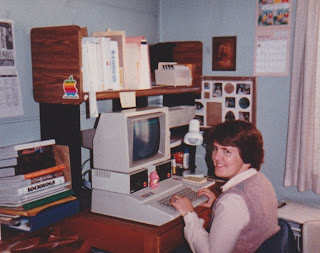Voice Thread wouldn't be my favorite assignment, but I want to offer it as an option for people who learn differently. Responding verbally to a VoiceThread was a completely new experience for me. I wrote many of my thoughts before recording them, because I've always been a manuscript preacher. I’m certain listeners could tell I was reading from notes at first, but by the end I started to relax and improvise a bit. The process of recording was a bit awkward since I never have enjoyed practicing a sermon to an empty room. It is difficult for me to speak without seeing the nonverbal response of listeners. If you are the kind of person that avoids making phone calls at all costs, VoiceThread may not be your favorite tool.
I can see why this tool would be a great benefit for ESL students. Learners can pause, delete, and retry as many times as they want until they are confident with their contribution. This allows them to practice speaking in a low risk situation, and provides an alternate mode of assessment.
My daughter is allowed to use a keyboard for her writing disability, which works well for her because we followed a doctor’s advice and encouraged her to practice with a typing program over the summer. VoiceThread could be another option for students who have not learned to touch type efficiently.
Listening to a student does take more time than reading print. However, giving a time limit for verbal response could minimize this issue with the added benefit of requiring the student to outline a well-constructed answer. With VoiceThread, a student could focus on the organization instead of the mechanics of typing or handwriting.
Note: My daughter has given me permission to talk about her writing challenges in class and on my blog.

